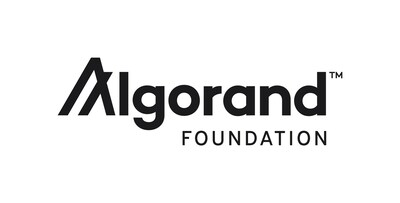
Python is used by more than 10 million software developers worldwide and is the language behind popular apps like Instagram, Spotify and Uber
SINGAPORE, March 27, 2024 /PRNewswire/ — The Algorand Foundation today announces the launch of AlgoKit 2.0, the latest upgrade to the AlgoKit command line interface (CLI) – a simple, one-stop toolset for developers building on the Algorand protocol. AlgoKit 2.0’s native support for Python empowers developers to write Algorand apps in regular Python. The toolkit has also been internally re-architected with an improved templating system, creating an overall more streamlined developer experience.
AlgoKit was conceived to help developers quickly and easily build and launch secure, automated, production-ready decentralized applications. Version 1.0, launched in March 2023, introduced a simple 5-minute onboarding process, giving you powerful tools to build, test and deploy. Now just one year later, Version 2.0 has expanded into a full kit for developers, featuring a library of smart contract templates; all necessary application infrastructure running locally; a simplified frontend design experience; and native integration of the first common programming language, Python.
“Seismic change is coming to Algorand this year, and the introduction of Python is a massive step forward on the roadmap towards removing all barriers to entry for developers. A world-class blockchain deserves world-class developer tools, and that’s what we’re aiming to deliver with AlgoKit,” said Algorand Foundation CTO John Woods. “Now, all that Algorand offers is instantly accessible to any dev who knows Python, whether a student coming out of CS101 or a seasoned AI/ML researcher. We’re excited to see what the millions of Python devs out there decide to build.”
The Algorand blockchain already has everything an application needs right in layer one, which means no third-party solutions are required. This includes powerful features such as programmable smart contracts, on-chain randomness, state proofs for cross-chain bridging, and more. In addition to making Algorand accessible to more developers, native support for Python also benefits companies building applications by dramatically reducing an application’s go-to-market costs and decreasing the maintenance burden.
AlgoKit 2.0 has also been internally re-architected and introduces an improved templating system. This enables easier project orchestration from the command line interface and streamlines the development process for users wishing to integrate their own templates. It also means that every template now comes with a valid GitHub Codespaces configuration, enabling developers to write code and interact with AlgoKit directly from their browser.
Developers can start their journey with AlgoKit via developer.algorand.org/algokit. The Algorand team will also be hosting a series of beginner and intermediate Developer Bootcamps this Spring, in both English and Spanish, for those interested in kick-starting their blockchain coding journey. Visit developer.algorand.org/bootcamps to learn more and sign up.
AlgoKit will continue to see additional upgrades throughout 2024, including the integration of an additional common programming language. Algorand will also introduce the incentivization of consensus in the second half of 2024; more details on this and other forthcoming technical upgrades can be found here.
About the Algorand Foundation
The Algorand Foundation is dedicated to helping fulfill the global promise of the Algorand blockchain by taking responsibility for its sound monetary supply economics, decentralized governance, and healthy and prosperous open-source ecosystem. Designed by MIT professor and Turing Award winning cryptographer Silvio Micali, Algorand is uniquely capable of delivering on the promise of a borderless global economy. It achieves transaction throughputs at the speed of traditional finance, but with immediate finality, near zero transaction costs, and on a 24/7 basis. For more information, please visit https://algorand.foundation.
SOURCE Algorand Foundation